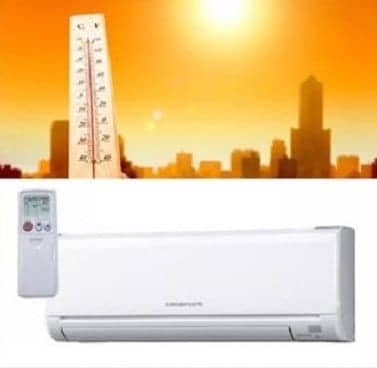AC STORE Specials
Helping you air conditioner and dealing with your AC in high Humidity Temps
The summer heat wave is often harsh.
During the summer months, the intensity of heat waves is often pronounced. Once again, Queensland finds itself grappling with the discomfort brought on by excessive perspiration. It is imperative to acknowledge that air conditioning systems can face operational challenges amidst this seasonal adversity. To mitigate the inconvenience of manually toggling air conditioning and heating units, it is crucial to understand the phenomenon of condensation on A/C grilles.
Condensation occurs when the surface temperature of the grille falls below the dew point of the surrounding air, leading to the conversion of water vapor into liquid form. Typically, at normal internal design conditions (24°C / 55% RH), condensation does not occur as the dew point of the air surrounding the grille remains lower than the grille’s surface temperature. However, an increase in room relative humidity can elevate the dew point, potentially surpassing the surface temperature of the grille and resulting in condensation formation. The extent of condensation is contingent upon the airflow across the grille surface.
1. Air Performance: Leaving doors open can disrupt the efficiency of air conditioning systems, allowing cool air to escape through ductwork leaks. This not only compromises air retention but also induces condensation on the ductwork exterior, leading to increased electricity consumption.
2. Poor Ventilation of the Roof Cavity: A substantial portion (25-35%) of home heat originates from the roof, burdening ducted air conditioning systems. Installing roof ventilation systems, such as solar whirly birds, can mitigate heat buildup, enhancing the efficiency of air conditioning units and preserving their warranty integrity.
We STRONGLY RECOMMEND solar whirly birds
https://www.solarking.net.au/product/solar-roof-vent?gad_source=1&gclid=Cj0KCQiAh8OtBhCQARIsAIkWb68hx51ZlCFIPnxzhkMOBIQpbdO0eCzSFjIQ2ZKbFHt3zQrPnggWNqsaAnVaEALw_wcB
3. Enhancing Economic Viability: To optimize air conditioning efficiency during the scorching summers of South East Queensland, it is advisable to activate the system early in the morning. By establishing a comfortable temperature before peak daytime heat, the system operates more efficiently, reducing strain and energy consumption.
In conclusion, to preempt condensation issues, the following measures are recommended:
– Maintain closed doors and windows when the air conditioning system is in use to prevent outside air infiltration, particularly on humid days.
– Ensure cleanliness of air conditioning system return air filters to uphold adequate airflow, preventing low grille surface temperatures conducive to condensation.
– Implement appropriate temperature setpoints, especially during periods of high ambient humidity, to facilitate moisture removal and minimize condensation risk. Gradually adjust setpoints as per occupant preferences after achieving initial room moisture control.


